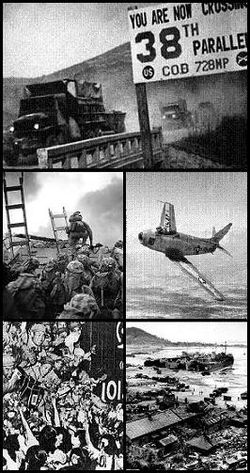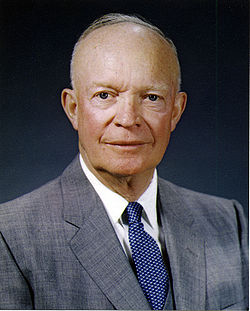| |
|
|
|
|
 1947 - 1953 (5 years) Submit Photo / Document 1947 - 1953 (5 years) Submit Photo / Document
| |
Date |
Event(s) |
| 1 | 1898 | |
| 2 | 1945 | |
| 3 | 1947 | - 1947—1947: Most severe winter in Britain for 53 years at start of the year - heavy snow and much
flooding later
- 1947—1947: First British nuclear reactor developed
- 1 Jan 1947—1 Jan 1947: Coal Mines nationalised
- 23 Feb 1947—23 Feb 1947: International Organization for Standardization (ISO) founded
- 1 Mar 1947—1 Mar 1947: International Monetary Fund begins financial operations
- 1 Apr 1947—1 Apr 1947: School leaving age raised to 15 in Britain
- 26 Oct 1947—26 Oct 1947: British military occupation ends in Iraq
- 20 Nov 1947—20 Nov 1947: Marriage of Princess Elizabeth (later Elizabeth II) and Philip Mountbatten in
Westminster Abbey
|
| 4 | 1948 | - 1948—1948: British Citizenship Act : all Commonwealth citizens qualify for British passports
- 1948—1948: Transistor radio invented
- 1948—1948: Long-playing record (LP) invented by Goldmark
- 1 Jan 1948—1 Jan 1948: British Railways nationalised
- 5 Jul 1948—5 Jul 1948: National Health Service (NHS) begins in Britain
- 29 Jul 1948—29 Jul 1948: London Olympics begin
|
| 5 | 1949 | - 1949—1949: Maiden flight of the Bristol Brabazon (broken up in 1953 for scrap)
- 1949—1949: De Haviland produces the Comet - first jet airliner
- 15 Mar 1949—15 Mar 1949: Clothes rationing ends in Britain
- 4 Apr 1949—4 Apr 1949: Twelve nations sign The North Atlantic Treaty creating NATO
|
| 6 | 1950 | - 19 May 1950—19 May 1950: Points rationing ends in Britain
- 26 May 1950—26 May 1950: Petrol rationing ends in Britain
- 25 Jun 1950—27 Jul 1953:
 Korean War Korean War
- 11 Jul 1950—11 Jul 1950: 'Andy Pandy' first seen on BBC TV
- 9 Sep 1950—9 Sep 1950: Soap rationing ends in Britain
- 28 Dec 1950—28 Dec 1950: The Peak District becomes the Britain's first National Park
|
| 7 | 1951 | - 3 May 1951—3 May 1951: Festival of Britain and Royal Festival Hall open on South Bank, London
- 28 May 1951—28 May 1951: First Goon Show broadcast
- 20 Dec 1951—20 Dec 1951: Electricity first produced by nuclear power, from Experimental Breeder Reactor
|
| 8 | 1952 | - 1952—1952: Contraceptive pill invented
- 1952—1952: Britain explodes her first atomic bomb, in Australia
- 1952—1952: Radioactive carbon used for dating prehistoric objects
- 1952—1952: Bonn Convention: Britain, France and USA end their occupation of West Germany
- 6 Feb 1952—6 Feb 1952: King George VI dies
- 21 Feb 1952—21 Feb 1952: Identity Cards abolished in Britain
- 2 May 1952—2 May 1952: First commercial jet airliner service launched, by BOACComet between London
and Johannesburg
- 5 Jul 1952—5 Jul 1952: Last tram runs in London (Woolwich to New Cross)
- 16 Aug 1952—16 Aug 1952: Lynmouth (North Devon) flood disaster
- 6 Sep 1952—6 Sep 1952: DH110 crashes at Farnborough Air Show, 26 killed
- 3 Oct 1952—3 Oct 1952: End of tea rationing in Britain
- 1 Nov 1952—1 Nov 1952: The first H-bomb ever ('Mike') was exploded by the USA - the mushroom cloud
was 8 miles across and 27 miles high. The canopy was 100 miles wide. Radioactive mud fell
out of the sky followed by heavy rain. 80 million tons of earth was vaporised.
- 25 Nov 1952—25 Nov 1952: Agatha Christie's 'The Mousetrap' opens in London
- 4 Dec 1952—4 Dec 1952: Great smog hits London
|
| 9 | 1953 | - 20 Jan 1953—20 Jan 1961:
 Dwight D. Eisenhower U.S. Presidency Dwight D. Eisenhower U.S. Presidency
- 31 Jan 1953—31 Jan 1953: Said to be the biggest civil catastrophe in Britain in the 20th century -
severe storm and high tides caused the loss of hundreds of lives - - effects travelled from the
west coast of Scotland round to the south-east coast of England [The Netherlands were even
worse affected with over a thousand deaths]
- 5 Feb 1953—5 Feb 1953: Sweet rationing ends in Britain
- 5 Mar 1953—5 Mar 1953: Death of Stalin
- 26 Mar 1953—26 Mar 1953: Jonas Salk announces his polio vaccine
- 24 Apr 1953—24 Apr 1953: Winston Churchill knighted
- 25 Apr 1953—25 Apr 1953: Francis Crick and James D Watson publish the double helix structure of DNA
- 2 Jun 1953—2 Jun 1953: Coronation of Elizabeth II
- 26 Sep 1953—26 Sep 1953: Sugar rationing ends in Britain (after nearly 14 years)
|
|
|
|
|
|



 Submit Photo / Document
Submit Photo / Document
